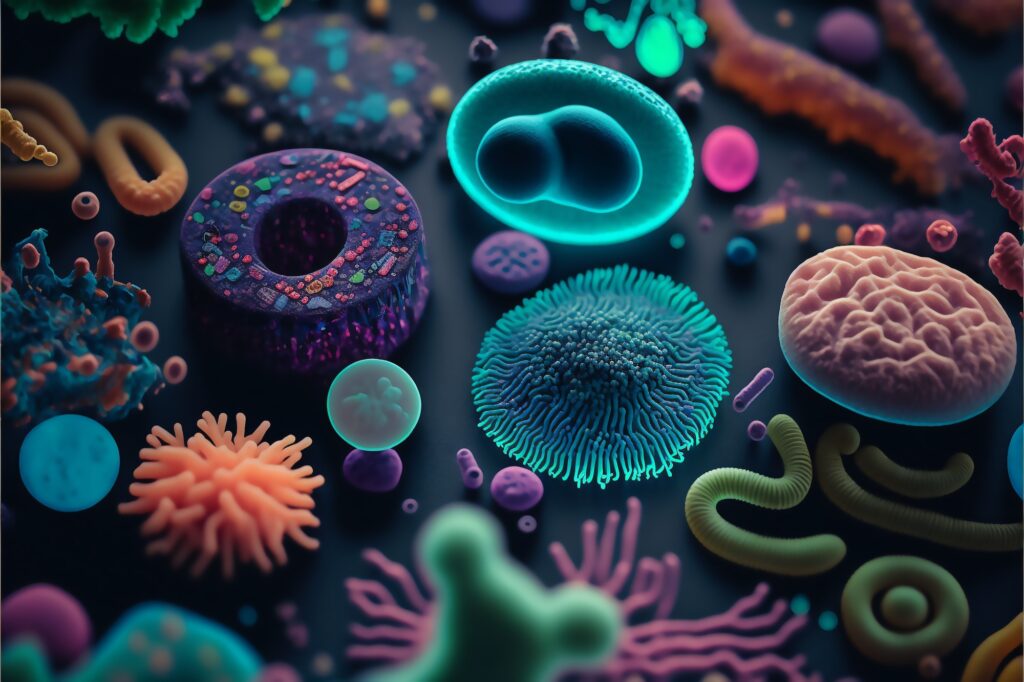New Study Shows What’s in Your Gut Influences How and When You Sleep

The human body is home to trillions of microorganisms. These microbes reside all over the body, from the skin to the nose, throat, and mouth, but most live in the digestive system. These gut inhabitants, collectively termed the gut microbiota, are more than just passive residents; they actively shape our well-being in ways we’re only beginning to understand.
For anyone who’s struggled with sleep – whether it’s hitting the snooze button one too many times, tossing and turning with insomnia, or snoring through the night – a recent study sheds light on how bacteria in our gut may play a role in when and how we sleep.
Researchers at Shandong University investigated the relationship between our sleep habits and the types of bacteria in our gut. By analyzing large databases of health information from around the world, they pinpointed specific gut bacteria that appear to have a direct impact on how long we sleep, our chronotype, and whether we experience certain sleep problems.
The study found that the quantity of certain types of bacteria, called Lachnospiraceae UCG004 and Odoribacter, promoted longer sleep, while Selenomonadales and Negativicutes increased the risk of insomnia. While each of these bacteria occur naturally in the gut, another recent study found that the amount of fiber in a person’s diet affects the abundance of both Lachnospiraceae and Odoribacter.

Researchers also found that those with an evening chronotype, often termed night owls, could have this trait due to the presence of Enterobacteriaceae or Anaerofilum in the gut. Interestingly, both types of bacteria have also been linked to obesity.
In addition, the study showed that an abundance of Ruminococcus torques is linked to an increased risk of snoring, while Senegalimassilia may decrease this risk. Ruminococcus torques has been found to be more prevalent in people with obesity, while those at a healthy weight have been found to have more Senegalimassilia.
While further research will be needed to understand the relationship between gut health and sleep, the results of this study emphasize the potential of personalized, gut-based treatments to improve sleep. These results also underline the importance of maintaining a healthy balance of gut bacteria for better sleep and overall well-being.
To support a healthy and diverse gut microbiome, experts recommend a diet rich in prebiotics and probiotics. Prebiotics, found in foods like vegetables and those high in fiber, support the growth of beneficial bacteria in the gut. On the other hand, probiotics introduce healthy bacteria directly into the body and can be found in yogurt, sourdough, and other fermented foods.
By nurturing a diverse gut microbiota, you not only support your overall health but also pave the way for a more restful night’s sleep.
Got a hot tip? Pitch us your story idea, share your expertise with SleepFoundation.org, or let us know about your sleep experiences right here.
References
5 Sources
-
Ursell, L. K., Metcalf, J. L., Parfrey, L. W., & Knight, R. (2012). Defining the human microbiome. Nutrition reviews, 70 Suppl 1(Suppl 1), S38–S44.
https://pubmed.ncbi.nlm.nih.gov/22861806/ -
Da Silva, G., & Domingues, S. (2017) We Are Never Alone: Living with the Human Microbiota. Frontiers for Young Minds., Retrieved October 19, 2023, from
https://kids.frontiersin.org/articles/10.3389/frym.2017.00035 -
Valdes, A. M., Walter, J., Segal, E., & Spector, T. D. (2018). Role of the gut microbiota in nutrition and health. BMJ, 361, k2179.
https://pubmed.ncbi.nlm.nih.gov/29899036/ -
Yue, M., Jin, C., Jiang, X., Xue, X., Wu, N., Li, Z., & Zhang, L. (2023). Causal effects of gut microbiota on sleep-related phenotypes: A two-sample Mendelian Randomization study. Clocks & Sleep, 5(3), 566–580.
https://pubmed.ncbi.nlm.nih.gov/37754355/ -
Lin, D., Peters, B. A., Friedlander, C., Freiman, H. J., Goedert, J. J., Sinha, R., Miller, G., Bernstein, M. A., Hayes, R. B., & Ahn, J. (2018). Association of dietary fibre intake and gut microbiota in adults. The British Journal of Nutrition, 120(9), 1014–1022.
https://pubmed.ncbi.nlm.nih.gov/30355393/












































































